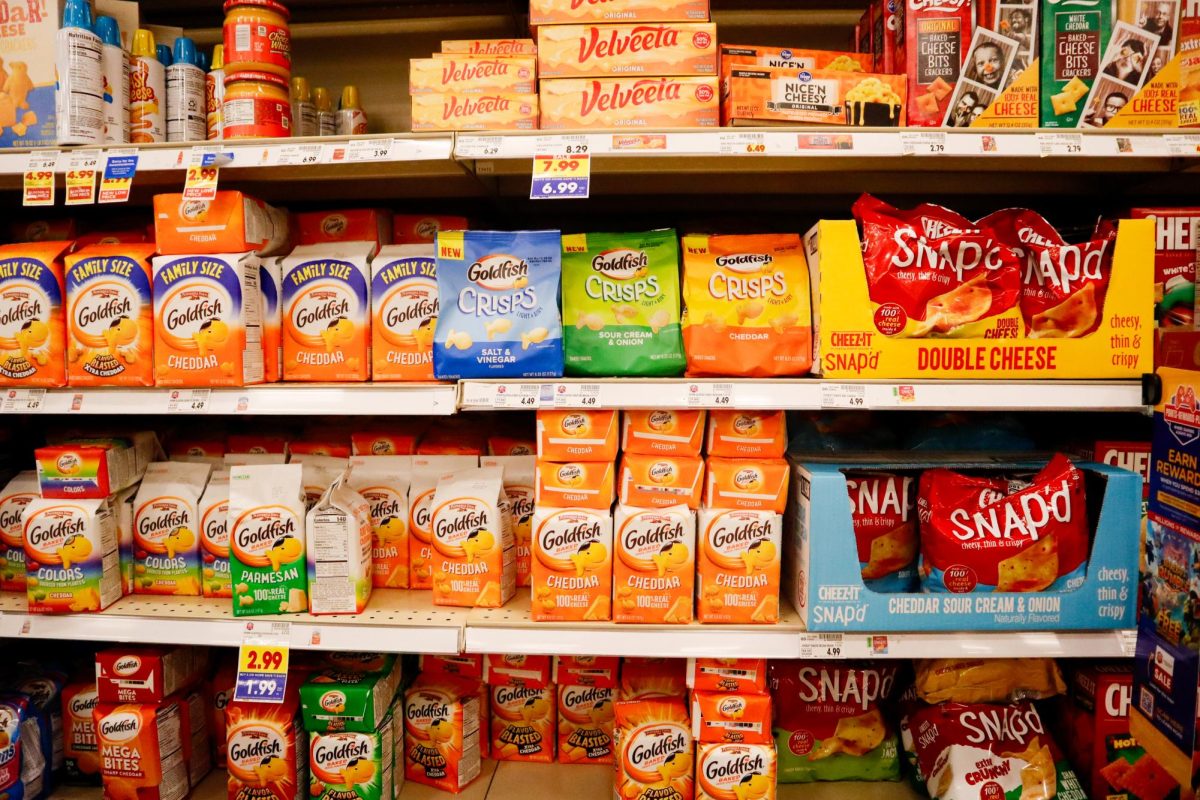Student Eligibility
Alex Hyatt, reporter
With school well under way this academic year, the federal government has laid out a plan to communicate with college students to provide more information on food security.
College students nationwide will now be notified about their Supplemental Nutrition Assistance Program (SNAP) eligibility when they complete Federal Student Aid (FSA) applications.
For SNAP purposes, one is considered a student when they are enrolled at least half-time in an institution of higher education. According to the U.S. Department of Agriculture’s Food and Nutrition Service (FNS), if a student meets at least one of the qualifying criteria, they could be eligible to receive SNAP benefits. These criteria include, but are not limited to, working twenty plus hours per week, participating in a federal or state work-study program, or receiving on-the-job training.
Currently about two thirds of college students could be eligible for SNAP benefits but are not aware. Some of the barriers that students face when trying to access SNAP include difficulty navigating the rules for eligibility as a college student and little communicated information about resources available to them.
With a collaboration between the Department of Education and the Department of Agriculture’s Food and Nutrition Service (FNS), students will receive emails about the application process for SNAP, according to a spokesperson from the U.S. Department of Education in an email.
In addition to communicating with students, these departments will be communicating with educational institutions on how to better support and help students navigate through the SNAP application process.
When considering how to best reach out to students, a spokesperson from the Department of Agriculture said that emails were chosen as the outreach method. They said it is the most effective way for the Federal Student Aid (FSA) office to communicate with students.
The Department of Education said that students who meet the criteria for possible SNAP benefits, according to their FAFSA information, will be contacted at least once a year.
According to the Department of Education, a message was sent out in November to possibly eligible students listing eligibility criteria.
The Department of Education stated that there would be a pilot program that would include up to 10 different states. These states’ SNAP agencies would work with colleges to communicate with students and institutions about how to best provide technical assistance for those who may be eligible for SNAP. A spokesperson from the Department of Education said that more information about this pilot program will be released at a later date.
The Department of Education noted that students are not contacted about their eligibility but they are contacted about how to contact their state SNAP agency to work through possible eligibility.
There are a few resources for students who are looking for more information on the SNAP program and eligibility. Students can contact the state SNAP agency in the state they reside. Many colleges and universities’ financial aid offices can also provide more SNAP information.
Potential limitations under Trump administration
Jaxson Skipper, reporter
At a rally in New York on Oct. 27, Trump stated that he would let Robert F. Kennedy Jr. “go wild on health.”
In an opinion piece for the Wall Street Journal, Kennedy Jr. said he would like to place a prohibition on processed foods and sugary drinks for the Supplemental Nutrition Assistance Program program, better known as SNAP.
According to the USDA website, “SNAP provides food benefits to low-income families to supplement their grocery budget so they can afford the nutritious food essential to health and well-being.”
However, there are very few restrictions on what can be purchased with SNAP EBT cards. The USDA website lists these restrictions as alcohol, tobacco, vitamins, supplements, medicines, live animals, already cooked “hot foods” and any non-food items.
According to Kennedy Jr., the lack of restrictions leads to 70% of SNAP purchases used for processed foods, and 10% for “sugar drinks”.
Timothy Nguyen, a peer navigator for the Basic Needs Center at Oregon State University, discussed how possible prohibitions on SNAP purchases could affect students receiving SNAP benefits.
“I think it would impact them negatively by a lot … Even though it’s healthier, there are other things that students need,” Nguyen said. “People need new things and different kinds of requirements like dietary restrictions.”
As a peer navigator, Nguyen helps students access all the resources available at the Basic Needs Center such as their pantry, free food, laundry and strategy conversations to help students access housing and benefits such as SNAP.
“Especially with the amounts people can get, some people can get $200 in Oregon or like $75,” Nguyen said. “If they’re getting $200 of SNAP and they’re spending it all on produce, then they’ll have a lot of leftovers, so they’re probably trying to cut it down on the amount that people are getting. So it would be hard on students.”
Nguyen also expressed that he’s not too worried about the possible changes for students.
“Whether or not it passes through Oregon, we’d figure out a way to get it back,” Nguyen said.
Nguyen said he hopes SNAP remains accessible to the people who need it.
Regardless of which laws or regulations are passed under the new administration, Nguyen said the Basic Needs Center will always be a resource.
“If students need help, they can always come to us,” said Nguyen.


















































































![Newspaper clipping from February 25, 1970 in the Daily Barometer showing an article written by Bob Allen, past Barometer Editor. This article was written to spotlight both the student body’s lack of participation with student government at the time in conjunction with their class representatives response. [It’s important to note ASOSU was not structured identically to today’s standards, likely having a president on behalf of each class work together as one entity as opposed to one president representing all classes.]](https://dailybaro.orangemedianetwork.com/wp-content/uploads/2025/03/Screenshot-2025-03-12-1.00.42-PM-e1741811160853.png)
























